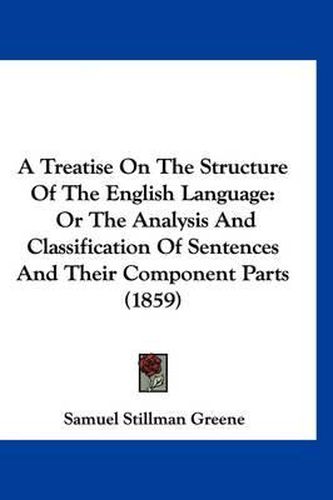Readings Newsletter
Become a Readings Member to make your shopping experience even easier.
Sign in or sign up for free!
You’re not far away from qualifying for FREE standard shipping within Australia
You’ve qualified for FREE standard shipping within Australia
The cart is loading…






Purchase of this book includes free trial access to www.million-books.com where you can read more than a million books for free. This is an OCR edition with typos. Excerpt from book: jive, containing four; ?jive, containing three; ? and five others, containing only two. SECTION VIII. INTERJECTIONS, AND THE CASE INDEPENDENT. 138. There are certain words used simply to express the emotions of the speaker, which do not form any part of a sentence; as, oh! alas! ah! such words are called Interjections, because they are thrown in between the parts of a sentence. (a.) Interjections have no dependence upon other words, and therefore need no further illustration. 139. It is often necessary to designate the person to whom language is addressed. When this is done, his name or title is introduced, generally, at the beginning of the sentence, but has no grammatical relation to the parts of it; as,
Father, I have returned
Sir, defeat is impossible. 140. A noun or pronoun thus used is said to be in the nominative case independent. 141. The interjection and the nominative case independent may be parsed by the following rule: ? Rule X. The nominative case independent, and the interjection, have no grammatical relation to the other parts of the sentence. Model For Analysis And Parsing. Oh! father, I want that lily. [. … is the subject. (Why ?) Want. is the predicate. (Why ?) Want. is limited by
that lily, denoting what is wanted. Oft / .is an interjection, having no dependence upon the other parts of the sentence; according to Rule X. Fattier is a common noun, of the second person, singular number, masculine gender, and nominative case independent; according to Rule X. Exercise 26. Write ten sentences, each containing a nominative case independent, an interjection, or both. Analyze and parse according to the model. SECTION IX. COMPLEX ELEMENTS. 142. It has already been shown, that the subject and predicate m…
$9.00 standard shipping within Australia
FREE standard shipping within Australia for orders over $100.00
Express & International shipping calculated at checkout
Purchase of this book includes free trial access to www.million-books.com where you can read more than a million books for free. This is an OCR edition with typos. Excerpt from book: jive, containing four; ?jive, containing three; ? and five others, containing only two. SECTION VIII. INTERJECTIONS, AND THE CASE INDEPENDENT. 138. There are certain words used simply to express the emotions of the speaker, which do not form any part of a sentence; as, oh! alas! ah! such words are called Interjections, because they are thrown in between the parts of a sentence. (a.) Interjections have no dependence upon other words, and therefore need no further illustration. 139. It is often necessary to designate the person to whom language is addressed. When this is done, his name or title is introduced, generally, at the beginning of the sentence, but has no grammatical relation to the parts of it; as,
Father, I have returned
Sir, defeat is impossible. 140. A noun or pronoun thus used is said to be in the nominative case independent. 141. The interjection and the nominative case independent may be parsed by the following rule: ? Rule X. The nominative case independent, and the interjection, have no grammatical relation to the other parts of the sentence. Model For Analysis And Parsing. Oh! father, I want that lily. [. … is the subject. (Why ?) Want. is the predicate. (Why ?) Want. is limited by
that lily, denoting what is wanted. Oft / .is an interjection, having no dependence upon the other parts of the sentence; according to Rule X. Fattier is a common noun, of the second person, singular number, masculine gender, and nominative case independent; according to Rule X. Exercise 26. Write ten sentences, each containing a nominative case independent, an interjection, or both. Analyze and parse according to the model. SECTION IX. COMPLEX ELEMENTS. 142. It has already been shown, that the subject and predicate m…